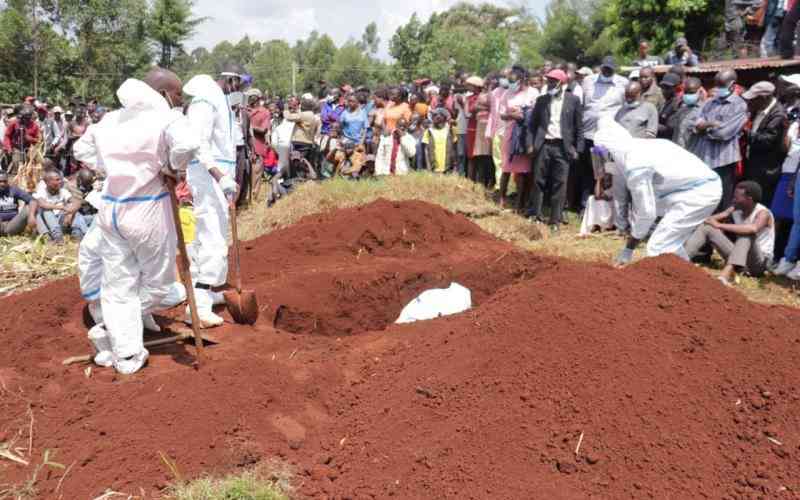×
The Standard e-Paper
Smart Minds Choose Us

The Kipsigis community ritual took centre stage during the exhumation of the body of 88-year-old Kipkoros Mutai from Kebeneti village in Kipkelion West.
The body had been mistakenly buried in Kiboyet village in Belgut constituency instead of the late 94-year-old Joel Kipngeny Chumo.